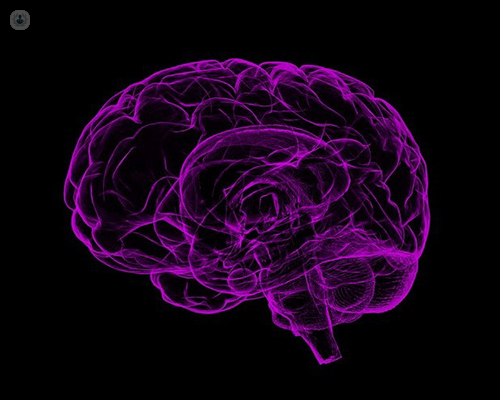Parkinson's disease: dismantling the misconceptions
Written by:Dr James Parkinson first wrote about the disease that would become known as Parkinson's disease in 1817. Although we still don't have a cure 200 years on, our understanding has taken great leaps and treatments are constantly improving. Dr James Teo, one of our top neurologists, discusses the disease that high profile sufferers such as Muhammed Ali and Michael J. Fox have done much to raise awareness for.

Around 120,000* people in the UK have Parkinson’s disease
Parkinson’s disease is a chronic, degenerative neurological disorder that affects around 1 in 500* people in the UK. The condition gets gradually worse over time as different parts of the brain are damaged over a number of years.
Most people diagnosed are over the age of 50, however, a few people (about 1 in 20 with the disease) experience early-onset Parkinson’s. A Parkinson’s diagnosis before the age of 40 is said to be early-onset or young-onset Parkinson’s.
Some cases of Parkinson’s disease are inherited and mutations in a number of different genes are known to be linked to inheriting the disease (for example, Sergey Brin the founder of Google is known to have such a gene mutation even though he is not known to have Parkinson’s Disease yet).
The exact cause remains unknown
Whilst we know that Parkinson’s disease is brought on by a loss of nerve cells in multiple regions of the brain, we don’t know what causes the loss of these cells in the first place and the prevalent theory is that it relates to an abnormal protein in the brain.
A loss of nerve cells, or neurons, in a part of the brain called the substantia nigra leads to symptoms of Parkinson’s disease.
Many people will know that dopamine, a chemical produced in the brain, plays an important role in the brain’s reward system – however, it is also integral to movement. As dopamine-producing neurons decay, a person’s control over their movement declines.
The symptoms of Parkinson’s disease are not just physical
The most common and best-known symptom of Parkinson’s disease is uncontrolled shaking or tremor, usually accompanied by slow movement and stiff muscles. What many people often don’t appreciate however is that symptoms are also often psychological or ‘non-motor’.
Personality changes and speech problems can accompany Parkinson’s disease and the condition often brings on psychological symptoms like depression, anxiety and memory problems among others.
This is only a handful of symptoms and sufferers can experience multitudinous symptoms like balance problems, hallucinations, insomnia, loss of smell, dizziness and nerve pain to name a few.
It is often misdiagnosed
Parkinson’s disease used to be difficult to diagnose as there was no objective test for it.
If there is reason to believe a person has Parkinson’s disease based on reported symptoms, usually that get worse over time, they are likely to be sent to a neurologist, who will perform a neurological exam.
Sometimes, even a neurologist can misdiagnose the disease as, particularly in the early stages, there are a number of similar conditions and various medications can produce side-effects that look like Parkinson’s disease.
There are now newer, specialised nuclear scans of the brain called DAT-scans which increase the accuracy of the diagnosis.
Parkinson’s disease is incurable
Parkinson’s disease, at present, has no cure. There is, however, ongoing research into the disease and new treatments are constantly being investigated.
Currently, medications, therapies, and surgery (including deep brain stimulation) are available. These techniques are unable to cure the disease but are aimed at alleviating symptoms and increasing quality of life.
Parkinson’s disease is different for each person
Parkinson’s has a wide range of symptoms and each person cannot predict when and which symptoms they will get, and the rapidity of progress in neuroscience means that more is being learnt about the disease and how to treat it every year.
*NHS


